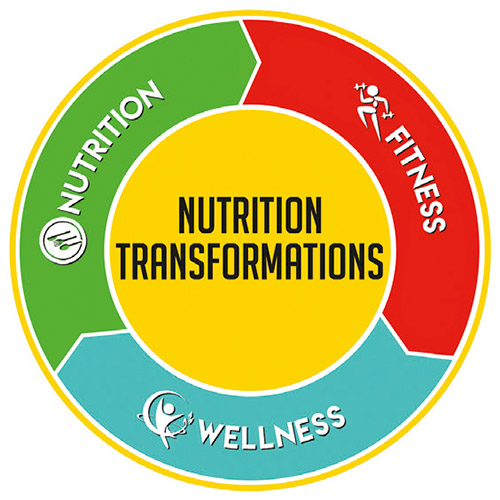
Dear Jenn,
My 6 year-old child has ADHD (attention deficit /hyperactivity disorder). My husband and I work with him to ensure success in school and social situations. My two older daughters are helpful. Can you offer suggestions regarding diet that may help with ADHD?
Sincerely,
Searching for ADHD Solutions
Dear Searching for ADHD Solutions,
I can appreciate your situation. Caring for a child with ADHD can be stressful. Support and proper therapy will help your child be successful. Let us explore how diet can affect ADHD.
Basic Information and Definition
ADHD is a condition that affects millions of children and often continues into adulthood. ADHD includes difficulty sustaining attention and hyperactive and impulsive behaviors. ADHD children often struggle with low self-esteem, troubled relationships and poor performance in school.
Although symptoms often lessen with age, some never completely outgrow ADHD. It is possible to learn coping strategies. Treatment typically involves medication and behavioral and other therapies. Early diagnosis and intervention can make a difference.
Subtypes of ADHD:
Predominantly Inattentive
Predominantly Hyperactive/Impulsive
Combined: Combination of both.
Causes of ADHD:
1. Genetics: 90% of people with ADHD inherit it from one or both parents. In most cases, more than one person in a family has ADHD and sometimes many family members have it.
2. Biology: The cerebral cortex (front part of the brain) is responsible for executive decisions. In ADHD this region of the brain is impaired, especially the right frontal lobe. This affects the ability to plan, decide and learn. Reasoning, emotions, motor control and language are adversely affected. The brain develops until 25 years of age. Some people grow out of the biological causes of ADHD and function well.
3. Chemistry: ADHD is associated with low levels of neurotransmitters: Dopamine is associated with the reward center in the brain. There is a link between dopamine levels and development of ADHD. Norepinephrine and dopamine both help with focus and attention.
4. Traumatic Brain Injury: Serious head injuries often precede ADHD.
5. Substance Abuse: Marijuana, nicotine, alcohol and other substance use predispose to development of ADHD.
6. Infection and/or abnormal immune system responses often precede ADHD.
7. Environmental Factors: Food additives/diet, lead contamination, maternal smoking during pregnancy and low birth weight all predispose to ADHD.
Diet and Nutrition:
Foods may play a role in affecting ADHD symptoms. The goal is to eliminate the foods that worsen symptoms and include those that help improve functioning. Studies show that a high-protein, low-sugar, no-additive diet, combined with ADHD-friendly supplements, can improve symptoms for kids and adults.
Recommendations
Up With Protein: Foods rich in protein—lean beef, poultry, fish, eggs and low-fat dairy products can have beneficial effects on ADHD symptoms. Protein-rich foods are used to make neurotransmitters. Additionally, protein prevents surges in blood sugar, which may help control hyperactivity. *Consume protein at all meals and snacks.
Down With Simple Sugars and Refined Carbs: Avoid candy, honey, sugar, corn syrup, sugared sports drinks, sodas, chips, potato fries, white flour, white pasta, white rice and processed carbohydrates (CHO). All of these can make a child feel irritable and stressed. *Offer high-fiber, complex carbohydrate products—brown rice, whole wheat breads and pastas, beans, legumes, nuts, seeds, oatmeal, low-sugar peanut and almond butter and quinoa.
Up the Omega-3 Fatty Acids: Fish oil can improve hyperactivity, impulsivity and concentration. Research suggests that kids with ADHD have lower than normal blood levels of Omega-3s. *Serve salmon, Atlantic mackerel, rainbow trout, herring, black cod, sardines, bluefin tuna, whitefish, striped bass and anchovies!
Minerals: Studies show that blood nutrients levels of: vitamin D, iron (ferritin), zinc and magnesium may be low in children with ADHD. Your pediatrician can test for these deficiencies. Minerals are involved in neurotransmitter production and release. *A dietician (Nutrition Transformations) can assess and design menus to include deficient nutrients. Your pediatrician may prescribe supplements as needed.
Considering Coffee? Studies have found that caffeine can boost concentration for people with ADHD. Caffeine raises chemicals the brain uses to send signals such as dopamine. This helps people with ADHD feel pleasure, calmness, and focus. *Discuss with your pediatrician and/or dietician (Nutrition Transformations) the use of caffeine for positive effects on ADHD.
Artificial Additives: Studies suggest that food additives can make kids without ADHD hyperactive and make hyperactive children worse. *Avoid artificial colors, flavors, preservatives and sweeteners. Read Food Labels!
Food Culprits: Consider dairy, wheat, and soy products. For certain individuals, these foods may exacerbate ADHD symptoms. Eliminate one or two of these foods for three weeks. Observe to see if your child’s symptoms improve. A dietician (Nutrition Transformations) can help guide you if your child needs to be on a corrective ADHD diet. *Fresh unprocessed foods are your best bet. Avoid colorful cereals, and substitute 100% fruit juice for soft drinks.
Herbs: There are some encouraging studies involving a combination of valerian and lemon balm. These herbs seem to relax children with ADHD by reducing anxiety. To improve attention, a product called “Nurture & Clarity” is promising. *Look for standardized herbs that are free of contaminants and discuss with your pediatrician or dietician.
Exercise: Exercise is a non-pharmaceutical ADHD treatment. Exercise promotes dopamine release, improves executive function, and benefits BDNF (brain-derived neurotrophic factors), which are involved in learning and memory. Exercise has been shown to improve attention and decrease aggression and impulsiveness. *Encourage exercise!
Conclusion: ADHD is a disorder that is treated with medication, cognitive and behavior therapy, diet intervention and regular exercise. Diet and exercise can make a positive impact on ADHD outcome. If you or a loved one is struggling with ADHD, Nutrition Transformations can help with a personalized ADHD diet plan and exercise program. Call today for your consultation!
Yours in good health,
Jenn
718-644-1387
See our March blog on National Nutrition Month!
By Jennifer Chapler, MS, RD, CDN













